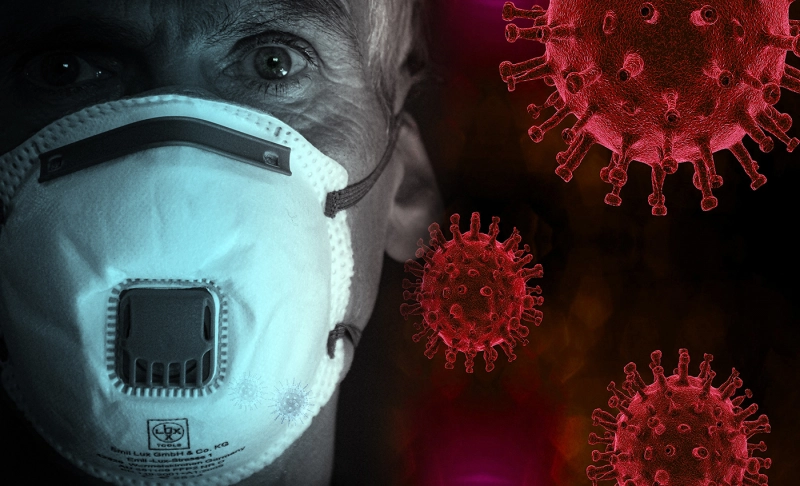By: Ilma Hasan
January 6 2022

As long as masks are regularly washed or disposed, experts say there is no evidence to suggest it increases chance of bacterial infections.
As long as masks are regularly washed or disposed, experts say there is no evidence to suggest it increases chance of bacterial infections. Although shifting guidelines on the type of mask to wear and where to use masks may have caused confusion in the early days of the pandemic, evidence has shown that masks are an effective way to stop the transmission of COVID-19. Masks do not cause any major side effects as long as they are kept clean and used correctly, according to the World Health Organisation. Experts advise that coverings be regularly cleaned in order to avoid contamination. It is recommended not to wear masks during exercise as sweat can produce additional wetness aiding the growth of microorganisms. In addition, reusable masks should be washed as soon as they become dirty, or at least once a day, disposable face masks should be thrown after one use, according to the Centers for Disease Control and Prevention. Dr. Rossana Rosa, an infectious disease physician, told Iowa's UnityPoint Health that, in terms of wearing a mask, the respiratory droplets you exhale that land on the inside of your mask that you then breath back in will not give you bacterial pneumonia." Therefore, barring few exceptions, such as children or persons with certain disabilities, masks are safe to use and do not cause further health complications. A University of California San Francisco cited an experiment in which nearly all of the hundreds of droplets ranging from 20 to 500 micrometers were blocked when the mouth was covered by a damp washcloth. According to the report, since it was understood that transmission could happen from pre-symptomatic and asymptomatic persons since viral load peaks in the days before symptoms, masks were useful in curbing the spread of COVID-19. In addition, researcher Abraar Karan told New York Magazine that surgical masks are more effective than cloth masks amid the highly transmissible Omicron variant. "The key reason is that transmission of the coronavirus is primarily through aerosols, which float around in the air — you inhale them — and are not filtered well by cloth masks. You really need melt-blown polypropylene, which you find in surgical masks and N95s," Karan said. The COVID-19 pandemic has given rise to a lot of potentially dangerous misinformation. For reliable advice on COVID-19, including symptoms, prevention, and available treatment, please refer to the World Health Organization or your national healthcare authority.